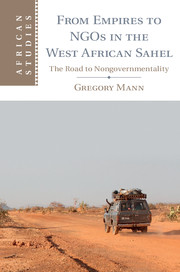1 - Knowing the Postcolony
Published online by Cambridge University Press: 05 January 2015
Summary
The Republic of Mali became an independent nation in 1960 with the break-up of the Mali Federation and the socialist option of September 22nd. And again in 1961, with the expulsion of French troops from military bases on its territory. And again in 1962, with the creation of the Malian franc. These at least were the perceptions of the ruling party, the Union Soudanaise-Rassemblement Démocratique Africain (US-RDA). But when did Mali become a society? This chapter asks how party leaders understood what they sought to govern and what the effects of that understanding were. It asks what it meant in Bamako in the 1960s for the US-RDA leadership to perceive of Mali as a society and to attempt to govern it as such.
One place to begin to think about these questions is on a quay in Conakry, in the neighboring territory of Guinea, where two young men met in 1946. One, waiting dockside, was Mamadou Madeira Keita, a low-level civil servant and archivist. Years later, when he was a political prisoner in the Malian Sahara, some would argue (with a good deal of exaggeration) that he was “the first francophone African ethnographer.” The other, descending the gangplank, was the Frenchman Keita had come to meet. Georges Balandier was unknown then, but his name is familiar now. Conakry was his second African port of call. The work with which he would make his name remained literally over the horizon, in Brazzaville. Yet the encounter between Keita and Balandier was foundational for both men. For the young Frenchman, Guinea, like postwar French Africa, was more than a laboratory. It was a workshop; he was one of its creations. Conakry, and Guinea at large, was also the crucible in which a powerful anticolonial politics would be forged by Madeira Keita and his allies. In this particular corner of West Africa, that politics and an emergent, engaged social science conditioned each other, like the two strands of a double helix, each a necessary yet ultimately contingent element of the other’s structure.
- Type
- Chapter
- Information
- From Empires to NGOs in the West African SahelThe Road to Nongovernmentality, pp. 15 - 41Publisher: Cambridge University PressPrint publication year: 2014

